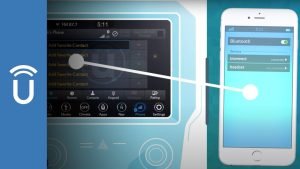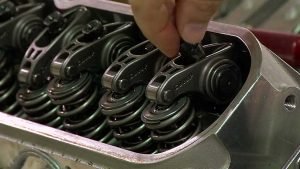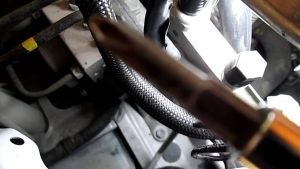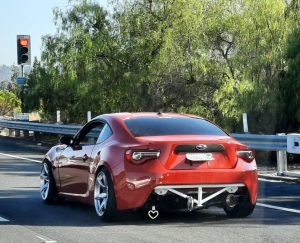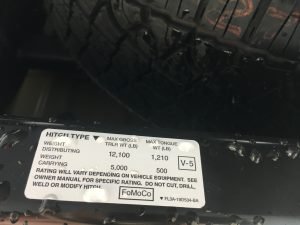
Contents
How Much Is Fuel Pump Replacement? A Comprehensive Guide
Replacing a fuel pump is a significant car repair, and understanding the cost beforehand can save you from unexpected expenses. This comprehensive guide will break down the factors influencing the price of a fuel pump replacement, provide a step-by-step overview (though you should always consult a professional mechanic for this complex repair), and offer helpful tips to avoid costly mistakes.
🛒 Recommended Product
Understanding the Cost Variables:
The price of fuel pump replacement varies drastically depending on several key factors:
-
Vehicle Make and Model: Luxury cars and trucks generally have higher labor costs and potentially more expensive parts. Older vehicles might require more extensive labor due to potential rust or difficult access.
-
Labor Costs: Labor rates vary significantly by location and the mechanic’s experience. Expect to pay more in urban areas or for specialized shops. Independent mechanics often charge less than dealerships.
-
Fuel Pump Type: The type of fuel pump installed in your vehicle affects the price. In-tank pumps are more common and generally less expensive to replace than external pumps. The complexity of the pump itself (e.g., electric vs. mechanical) also plays a role.
-
Additional Repairs: Sometimes, the fuel pump replacement might uncover other issues, such as a clogged fuel filter or damaged fuel lines. These unexpected repairs will increase the total cost.
-
Parts Cost: While the fuel pump is the main expense, other parts might need replacing, like the fuel filter or seals. Genuine OEM parts are typically more expensive than aftermarket ones. However, using cheaper, lower-quality parts could lead to future problems.
Estimated Cost Range:
While a precise cost is impossible without knowing your specific vehicle and circumstances, you can expect a range of $500 to $1,500 or more for the entire repair. This encompasses parts, labor, and potential unforeseen repairs. Remember that this is just an estimate; it’s best to get a quote from a reputable mechanic.
Step-by-Step Process (For Informational Purposes Only – Do Not Attempt This Yourself Without Professional Training):
🛒 Recommended Product
This section is for informational purposes only and should not be interpreted as a DIY guide. Fuel pump replacement is a complex procedure that requires specialized tools and expertise. Improper handling can lead to serious injury and vehicle damage.
-
Preparation: The vehicle needs to be safely secured, the fuel system depressurized, and the battery disconnected.
-
Access: Accessing the fuel pump often involves removing the rear seats, dropping the fuel tank, or disconnecting other components.
-
Pump Removal: Carefully remove the old fuel pump assembly, paying attention to all connections and components.
-
Installation: Install the new fuel pump assembly, ensuring all connections are secure and tight.
-
Testing: After reassembly, the system needs thorough testing to ensure proper function and leak-free operation.
Tips for Saving Money:
- Get Multiple Quotes: Compare prices from at least three different mechanics before making a decision.
- Consider Aftermarket Parts: While OEM parts offer peace of mind, aftermarket parts can be significantly cheaper without necessarily sacrificing quality. Always thoroughly research the brand and reviews before opting for aftermarket components.
- Maintain Your Fuel System: Regular fuel filter changes and responsible fuel practices can extend the life of your fuel pump and avoid premature failure.
Common Mistakes to Avoid:
- Attempting a DIY Repair: Unless you have extensive automotive experience, attempting this repair yourself is strongly discouraged. The risk of injury and further damage is too high.
- Ignoring Warning Signs: Don’t ignore symptoms like poor acceleration, engine sputtering, or a consistently low fuel pressure reading. Addressing problems early can prevent costly repairs later.
- Using Incompatible Parts: Always ensure that the replacement fuel pump and related parts are compatible with your specific vehicle model and year.
Conclusion:
Fuel pump replacement is a substantial car repair with a cost range that depends on multiple factors. While this article provides a general overview of costs and the process, always consult a qualified mechanic for a proper diagnosis, repair, and accurate pricing. Remember, safety and proper repair are paramount.
🛒 Recommended Product
FAQ
Q. How much does a fuel pump replacement typically cost?
A. The cost of a fuel pump replacement varies greatly depending on several factors including the make and model of your vehicle, the location of the fuel pump (in-tank or external), labor rates in your area, and whether any additional parts are needed. Generally, you can expect to pay anywhere from $300 to $1,200 or more. This includes the cost of the fuel pump itself, as well as labor for the replacement.
Q. What factors influence the price of a fuel pump replacement?
A. Several factors affect the final cost. The type of vehicle significantly impacts the price, with luxury cars and trucks often costing more to repair. The location of the fuel pump (inside the fuel tank is generally more expensive to access and replace) is another key factor. The mechanic’s labor rates in your region also play a role, as do any unforeseen repairs discovered during the process, such as damaged fuel lines or other components.
Q. Is it cheaper to replace the fuel pump myself?
A. While it might seem cheaper to DIY, replacing a fuel pump is a complex job requiring specialized tools and knowledge of fuel system safety procedures. Improper handling of fuel and its components can be dangerous. The cost of incorrect installation or a subsequent repair due to a DIY mistake can easily outweigh the labor costs of a professional mechanic.
Q. What are the signs I need a fuel pump replacement?
A. Symptoms of a failing fuel pump can include difficulty starting the car, sputtering or hesitation while driving, a whining noise coming from the fuel tank, reduced fuel economy, and the engine cutting off suddenly. If you notice any of these issues, it’s best to have your vehicle checked by a mechanic.
Q. Does my car’s warranty cover fuel pump replacement?
A. Whether or not your warranty covers a fuel pump replacement depends entirely on your vehicle’s warranty terms, the age of your car, and the reason for the fuel pump failure. Most manufacturer warranties cover the fuel pump for a specified period, usually under the powertrain warranty, but this often excludes wear and tear or damage caused by negligence. Check your warranty details carefully.
Q. Can I drive my car with a failing fuel pump?
A. While you might be able to drive for a short distance with a failing fuel pump, it’s risky and not recommended. Driving with a failing fuel pump can cause damage to other parts of your vehicle’s engine and lead to more costly repairs or even a complete engine failure. It’s best to have it inspected and repaired by a mechanic as soon as possible.
Q. How long does a fuel pump replacement typically take?
A. The time it takes to replace a fuel pump can vary depending on the vehicle’s make and model and the mechanic’s experience. A simple replacement might take a few hours, but more complex situations could require a full day or even longer. It’s best to contact the mechanic for an estimate of the time involved.
Related Articles
How Much to Replace Fuel Pump
How Much Does It Cost to Replace a Fuel Pump? A Comprehensive Guide A failing fuel pump can leave you stranded, so understanding the cost of replaceme…
How Much Does a Fuel Pump Cost
How Much Does a Fuel Pump Cost? A Comprehensive Guide Replacing a fuel pump is a significant car repair, and understanding the cost is crucial for bud…
DIY Brake Pad Replacement: A Step-by-Step Guide for Beginners
DIY Brake Pad Replacement: A Step-by-Step Guide for Beginners Recommended Product: Do-It-Yourself Car Repair And Maintenance Bible For Beginners: A Ha…
Affiliate Disclosure: As an Amazon Associate, I earn from qualifying purchases made through links on this site.


